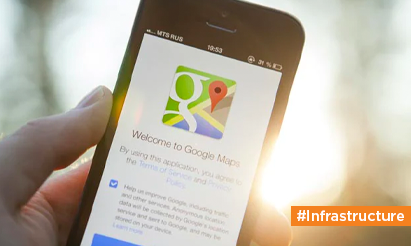How Millennials are Redefining Digital House Hunting: A Comprehensive Guide
In today’s fast-paced digital world, millennials are revolutionizing the way people search for their dream homes. This generation, born between 1981 and 1996, has grown up with technology at their fingertips, and their approach to finding real estate reflects this. Understanding how millennials are defining digital house hunting is crucial for both buyers and sellers alike. In this comprehensive guide, we’ll delve into the various aspects of this phenomenon and provide valuable insights to help you navigate the ever-evolving real estate landscape.
Understanding the Millennial Mindset
Millennials value convenience, efficiency, and transparency in their transactions. They prefer streamlined processes that save time and effort, making digital house hunting a natural choice for this tech-savvy generation. By leveraging online platforms and mobile apps, millennials can access a wealth of information about properties, neighborhoods, and market trends with just a few clicks.
The Rise of Mobile Apps in House Hunting
Mobile apps have become indispensable tools for millennials in their quest for the perfect home. These apps offer features such as personalized recommendations, virtual tours, and instant notifications about new listings. With the ability to search for properties on the go, millennials can explore a wide range of options and stay informed in real-time.
Leveraging Social Media Platforms
Social media has transformed the way millennials approach house hunting, providing a platform for sharing experiences, gathering recommendations, and conducting research. Platforms like Instagram, Facebook, and Pinterest allow users to discover properties through visually engaging content, connect with real estate professionals, and seek advice from their social networks.
The Importance of Online Reviews
In the digital age, online reviews wield significant influence over millennials’ purchasing decisions, including their choice of a home. Millennials place great value on authentic feedback from previous buyers and renters, relying on platforms like Yelp, Google Reviews, and Zillow to assess the reputation of real estate agents, property managers, and landlords.
Embracing Virtual Reality and Augmented Reality
Virtual reality (VR) and augmented reality (AR) technologies are revolutionizing the way millennials experience property listings. These immersive technologies allow potential buyers to take virtual tours of homes, visualize renovations, and even stage furniture placements—all from the comfort of their own devices.
Sustainability and Energy Efficiency
Millennials are environmentally conscious consumers who prioritize sustainability and energy efficiency in their lifestyle choices, including their housing preferences. Green features such as solar panels, energy-efficient appliances, and smart home systems are increasingly attractive to millennial homebuyers, who view them as not only eco-friendly but also cost-effective in the long run.
The Influence of Influencers
Influencer marketing has emerged as a powerful tool for reaching millennial homebuyers, with social media influencers and lifestyle bloggers shaping consumer preferences and trends in the real estate market. By partnering with influencers who resonate with their target audience, real estate brands can increase visibility, credibility, and engagement among millennials.
Navigating the Challenges of Digital House Hunting
While digital house hunting offers numerous benefits, it also presents challenges that millennials must navigate effectively. These challenges include information overload, online scams, lack of personalization, and the risk of relying too heavily on technology without considering other factors such as location, affordability, and long-term suitability.
Overcoming Information Overload
With an abundance of information available online, millennials may feel overwhelmed by the sheer volume of listings, data, and opinions. To avoid information overload, it’s essential for homebuyers to prioritize their search criteria, focus on key preferences, and leverage tools such as filters and alerts to streamline their decision-making process.
Recognizing Red Flags and Scams
The anonymity of the internet also exposes millennials to potential scams and fraudulent listings. To protect themselves from falling victim to scams, homebuyers should exercise caution, verify the legitimacy of listings, conduct thorough research on sellers and agents, and trust their instincts if something seems too good to be true.
Balancing Technology with Human Expertise
While technology plays a crucial role in digital house hunting, it’s essential for millennials to strike a balance between online tools and human expertise. Real estate agents, mortgage brokers, and other professionals offer invaluable insights, guidance, and negotiation skills that technology alone cannot replicate. Building relationships with trusted advisors can enhance the overall house-hunting experience and lead to better outcomes.
Maximizing Affordability and Long-Term Value
In their quest for homeownership, millennials must prioritize affordability and long-term value, taking into account factors such as mortgage rates, property taxes, maintenance costs, and potential appreciation. While digital tools can provide estimates and projections, it’s essential for homebuyers to conduct thorough financial planning and consider the broader economic context before making a purchase decision.
Conclusion
In conclusion, millennials are reshaping the landscape of house hunting through their embrace of digital technologies, preference for convenience and transparency, and commitment to sustainability and value. By understanding the unique needs and preferences of this generation, both buyers and sellers can adapt their strategies to succeed in the dynamic and ever-evolving real estate market.
FAQs
- How can social media platforms aid in the house-hunting process? Social media platforms allow users to discover properties, connect with real estate professionals, gather recommendations, and share experiences with their social networks. Platforms like Instagram, Facebook, and Pinterest are particularly useful for visual storytelling and community engagement in the real estate industry.
- What role do online reviews play in the decision-making process? Online reviews provide valuable insights into the reputation and credibility of real estate agents, property managers, and landlords. Millennials rely on platforms like Yelp, Google Reviews, and Zillow to assess the quality of service, responsiveness, and overall satisfaction before engaging with a professional or making a purchase.
- How can homebuyers protect themselves from online scams? Homebuyers can protect themselves from online scams by verifying the legitimacy of listings, conducting thorough research on sellers and agents, and trusting their instincts if something seems suspicious. It’s also essential to use secure payment methods, avoid sharing personal information indiscriminately, and report any fraudulent activity to the appropriate authorities.
- What factors should millennials consider when evaluating affordability? When evaluating affordability, millennials should consider factors such as mortgage rates, property taxes, homeowners insurance, maintenance costs, and potential appreciation. It’s essential to create a realistic budget, factor in all expenses, and explore financing options to ensure a sound financial investment.
- How can millennials leverage technology while still valuing human expertise? Millennials can leverage technology for its convenience, efficiency, and accessibility while also seeking out human expertise for personalized guidance, insights, and negotiation skills. Real estate agents, mortgage brokers, and other professionals play a crucial role in navigating the complexities of the housing market and advocating for their clients’ best interests.
Disclaimer: The views expressed above are for informational purposes only based on industry reports and related news stories. PropertyPistol does not guarantee the accuracy, completeness, or reliability of the information and shall not be held responsible for any action taken based on the published information.




